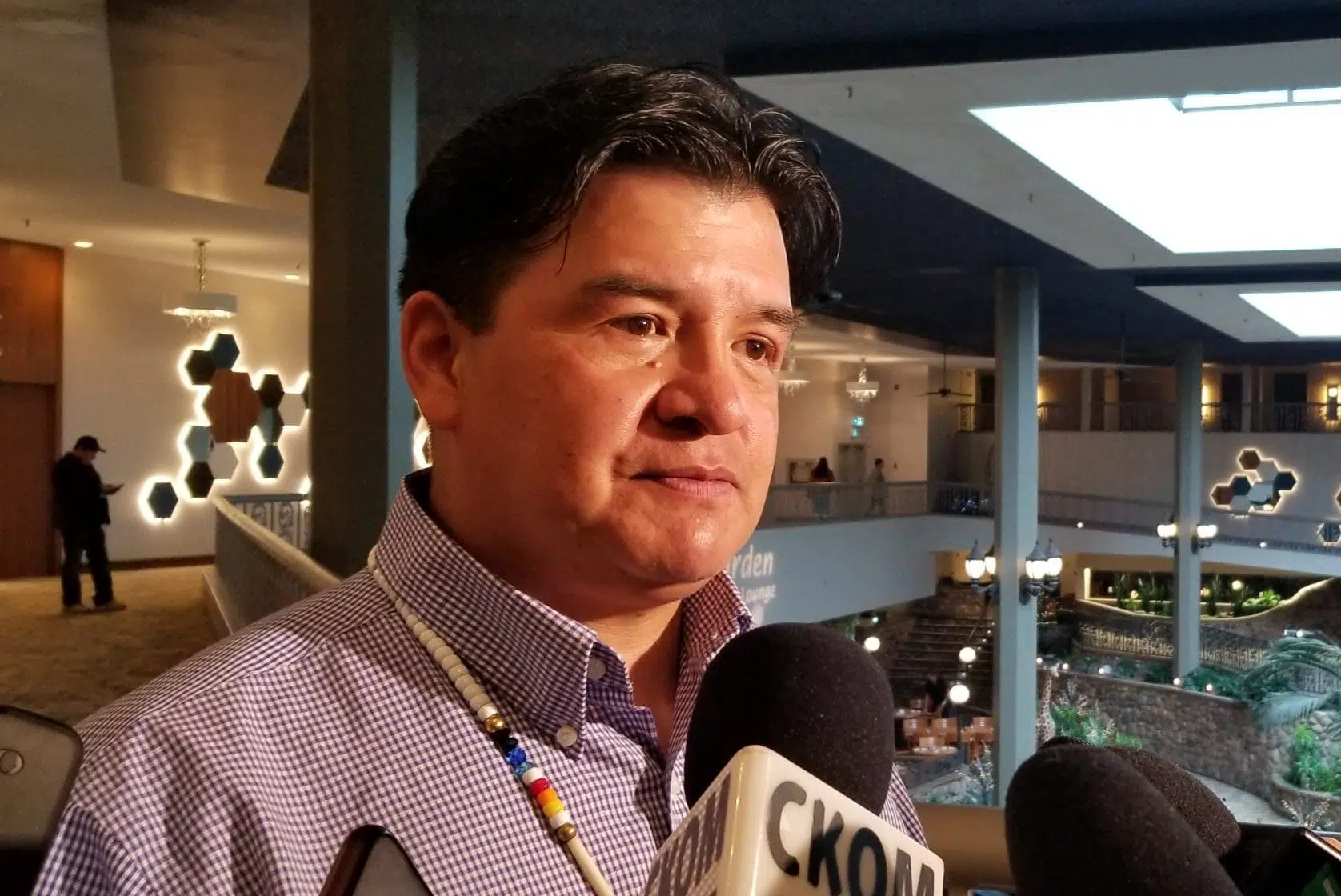The Federation of Sovereign Indigenous Nations (FSIN) wants to make sure no residential school survivor gets left behind.
On Monday, Chief Bobby Cameron said he would like to possibly see the entirety of The Indian Residential Schools Settlement Agreement (IRSSA) packages reopened by the federal government. He said many were missed during the first go-around in the mid-2000s.
Treaty Commissioner of Saskatchewan Mary Culbertson later confirmed many were missed, ballparking the number to be in the “thousands.” Culbertson was a lawyer and worked on the compensation package process, she told 650 CKOM.
But, the feds don’t seem to be moving on the Chief’s and Treaty Commissioner’s calls.
“The Government of Canada, which is only one party to the IRSSA, is not considering reopening the IRSSA,” states a response from Carine Midy, spokesperson for Crown-Indigenous Relations and Northern Affairs Canada.
The statement also said that during the implementation, parties agreed to extensive and ongoing programs for notice. It was to ensure that all former students were advised of the agreement, including compensation processes and application deadlines.
Yet, Culbertson said many survivors weren’t ready to speak of what they experienced during that time period, failing to make the deadline imposed.
“There are people who are my age, in their 40s and even in their 30s who went to residential school and had been abused and were not able to talk about it yet,” she said.
“It was what they could do at that time. We all have the power to rectify things. We all have the power to change things. We are people in positions of influence, we are people in positions of power — they can’t say they don’t have it.”
During the original residential school compensation, survivors were given between $10,000 and $200,000, based on the abuse suffered at the institutions.
Indigenous Lawyer working on class-action lawsuit
While calls to reopen the IRSSA hit a snag Thursday morning with the feds’ response, one Saskatchewan Indigenous lawyer is looking to help those survivors missed.
Eleanore Sunchild is this Indigenous lawyer, and she worked with Culbertson during the IRSSA process. The out of court settlement process, or the Independent Assessment Process (IAP), she said, allowed survivors to come forth with a claim of abuse.
The deadline to file a claim was September 19, 2012. She said many claims were made before that date, but hearings are still continuing. Sunchild, herself, still has clients claims going through the IAP hearings.
When it comes to how many survivors were missed in the original IRSSA, Sunchild agreed that thousands were missed or didn’t file.
“For a number of reasons. From not being able to disclose the abuse to being incarcerated, to being … transient. So there’s a lot of reasons why people missed filing on deadline. There’s probably thousands of them who (were) missed,” she said.
She said some residential school survivors would be unaware of these processes because many of the survivors don’t have a good command of the English language.
“There are some who don’t speak English, there are some who don’t speak (or) don’t read English,” she said. “It was a problem to reach all of the communities in Canada and all of the Indigenous survivors.”
Sunchild has been collecting names of people who were missed during the IAP process. She said they are looking at litigation for those, and it’s something they are actively working towards.
In moving forward with these processes, Sunchild said one of the 94 calls to action was listed in the final report in the Truth and Reconciliation Commission, written in specifically for these cases.
“We call upon the parties and, in particular, the federal government, to work collaboratively with plaintiffs not included in the Indian Residential Schools Settlement Agreement to have disputed legal issues determined expeditiously on an agreed set of facts,” the 29th call to action reads.
She said now, survivors need to file an individual lawsuit, a civil action against the government for a settlement of a claim. That means each individual needs to hire a lawyer, moving through on the civil process.
“It’s quite onerous for anybody,” she said.
“They should have their opportunity to tell their story.”







